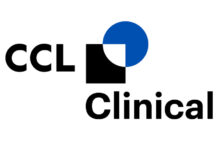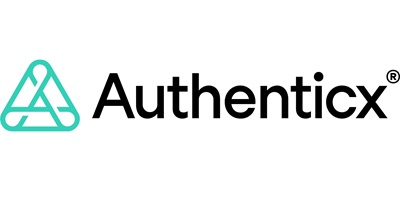As we navigate what the future of healthcare will look like, it’s clear that technology will play a pivotal role. Specially, artificial intelligence (AI) is set to be a critical tool used in reshaping how pharma companies operate, engage with patients, and achieve business outcomes. In the year ahead, pharma executives will need to quickly learn how the healthcare landscape is being increasingly dominated by AI and the ways they can leverage these technological advancements. The challenge will not just be about adopting AI tools, but about implementing them strategically to drive improved performance, enhance ROI, and support new product launches.
AI is no longer just a buzzword in the pharma industry. These tools are influencing everything from drug discovery and clinical trials to patient support services and administrative processes. To stay competitive in this rapidly evolving environment, pharma leaders will need to adopt a proactive, strategic approach to AI adoption. Here are three key AI trends and predictions for the pharmaceutical industry in 2025.
1. AI Implementation Will Require Streamlined Processes for Development and Procurement
In 2025, one of the most important factors that will differentiate successful pharma companies from those that fall behind will be their ability to integrate AI into their organizations. While many companies have begun experimenting with AI, those that will thrive will be the ones that invest in AI technology and create well-defined processes for its acquisition, implementation, and ongoing management.
To unlock AI’s full potential, pharma leaders will need to ensure their teams are educated and aligned on its usage, from procurement through deployment. Critical stakeholders—including executive leadership, patient services teams, and contact center staff—must be involved in these decisions to ensure smooth integration and execution.
AI adoption won’t happen overnight, and companies that have the foresight to plan for the workforce transformation AI demands will be better positioned for success. Those that fail to implement coordinated, strategic AI plans may find themselves struggling to keep up with competitors that have more mature, streamlined AI workflows in place.
Pharma companies that proactively manage the change process—upskilling employees, aligning cross-functional teams, and deploying AI strategically across the organization—will be better equipped to leverage AI for greater efficiency and enhanced business performance.
2. Administrative Burdens Will Be Acknowledged as Barriers to Healthcare
Over the past few decades, the healthcare industry has increasingly recognized the impact of social determinants of health (SDOH)—such as socioeconomic status, education, and access to healthcare services—on patient outcomes. However, as we move into 2025, there will be an increasing focus on another critical barrier to healthcare: administrative challenges.
Pharma executives will need to pay closer attention to how the administrative structure of healthcare systems impacts patient care. From scheduling appointments to dealing with insurance approvals and managing prescription costs, these administrative hurdles can delay or even prevent patients from receiving the care they need.
AI will play a crucial role in alleviating these barriers by automating administrative tasks, improving communication between healthcare providers, and simplifying patient interactions with the system. For example, AI-driven tools can help reduce delays by streamlining the prior authorization process, providing better coordination among healthcare teams, and improving access to timely care.
Emma Andrews from Pfizer highlighted the role of AI in elevating patient-centric initiatives. At Pfizer’s annual Patient Focus event, she noted how AI is helping organizations gain deeper insights into the patient, advocate, and caregiver experiences. In the coming years, we will see AI continue to contribute to this shift, enabling pharma companies to address both the clinical and administrative challenges that influence patient outcomes —providing a fully supportive care journey from beginning to end.
This more nuanced understanding of healthcare barriers will be essential for pharma executives who wish to improve patient access, affordability, and ultimately, clinical outcomes.
3. Regulatory and Ethical Considerations Will Shape the Role of AI
As AI adoption continues to grow, regulatory bodies around the world are beginning to introduce more stringent rules to manage the ethical implications and risks associated with AI applications. The rapid pace of AI development and deployment has already raised concerns about data privacy, algorithmic bias, and transparency in decision-making processes. There are current efforts working to introduce clearer guidelines to ensure that AI tools are used responsibly and in a manner that benefits both patients and healthcare organizations, such as the EU Artificial Intelligence Act and the U.S. Blueprint for an AI Bill of Rights.
In 2025, we can expect increased regulatory action that will shape the way pharma companies develop, implement, and monitor AI tools. For example, more comprehensive data privacy regulations will be enacted to protect patient information as AI systems become more integrated with electronic health records (EHRs) and other sensitive data sources. Additionally, there will be a growing emphasis on AI ethics, particularly in terms of bias mitigation and algorithm transparency.
Pharma executives will need to adopt rigorous internal policies to navigate this complex regulatory landscape. This includes implementing robust risk management frameworks, establishing AI ethics committees, and ensuring transparency in how AI systems are trained and tested.
The future of AI in pharma will not only depend on technological advancements but also on how organizations address these complex regulatory challenges. Executives will need to work closely with legal, compliance, and technology teams to stay ahead of evolving regulations and ensure their AI strategies align with global best practices.
In 2025, the pharmaceutical industry will find itself at the intersection of rapid technological innovation and increased regulatory oversight. To remain competitive, pharma executives will need to adopt a proactive approach to AI, ensuring that they have the right processes in place for its development, procurement, and integration. The key to success in this next era of technology will be understanding how AI can be used to drive value for business operations and for improving patient outcomes. Companies that can effectively navigate these trends and deploy AI strategically will be well-positioned to lead the way in transforming the healthcare landscape.





















